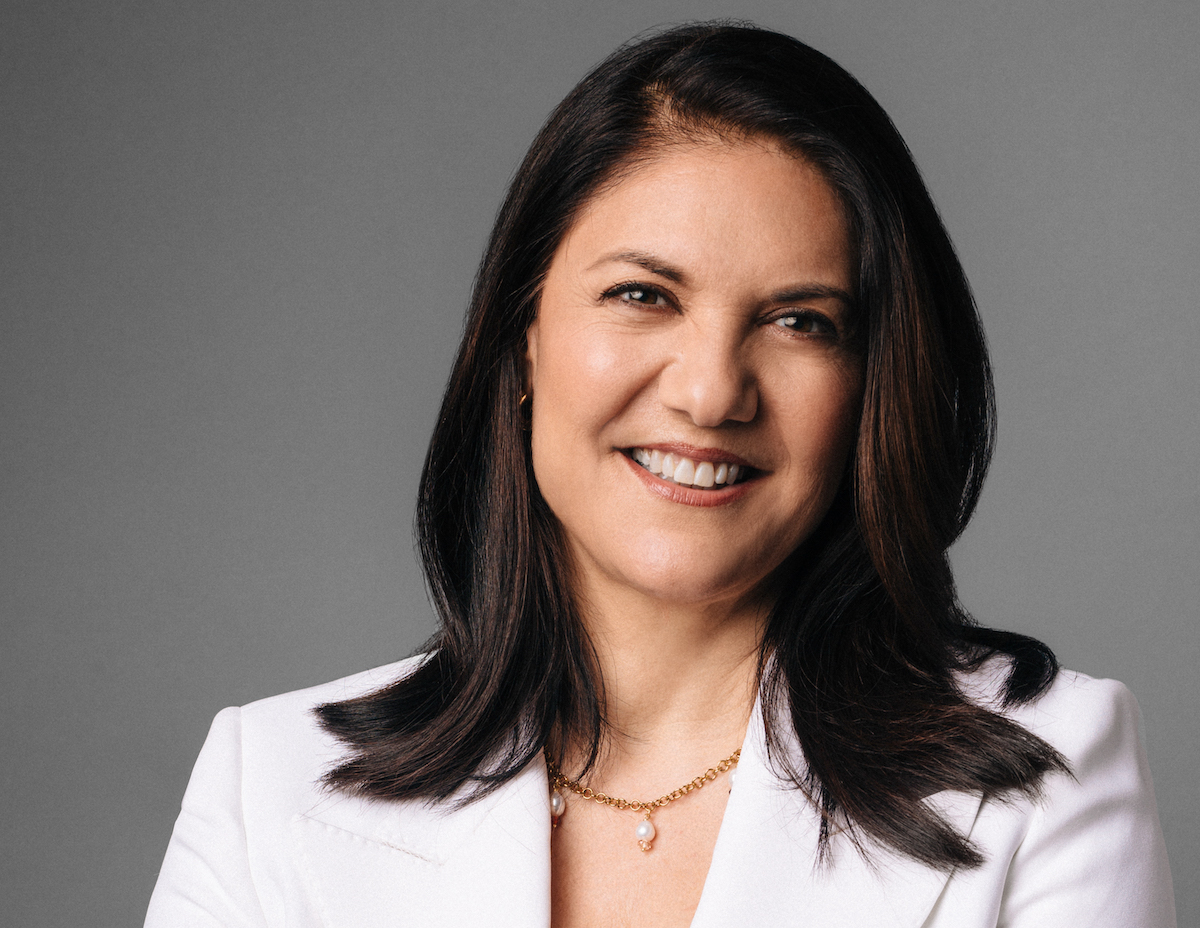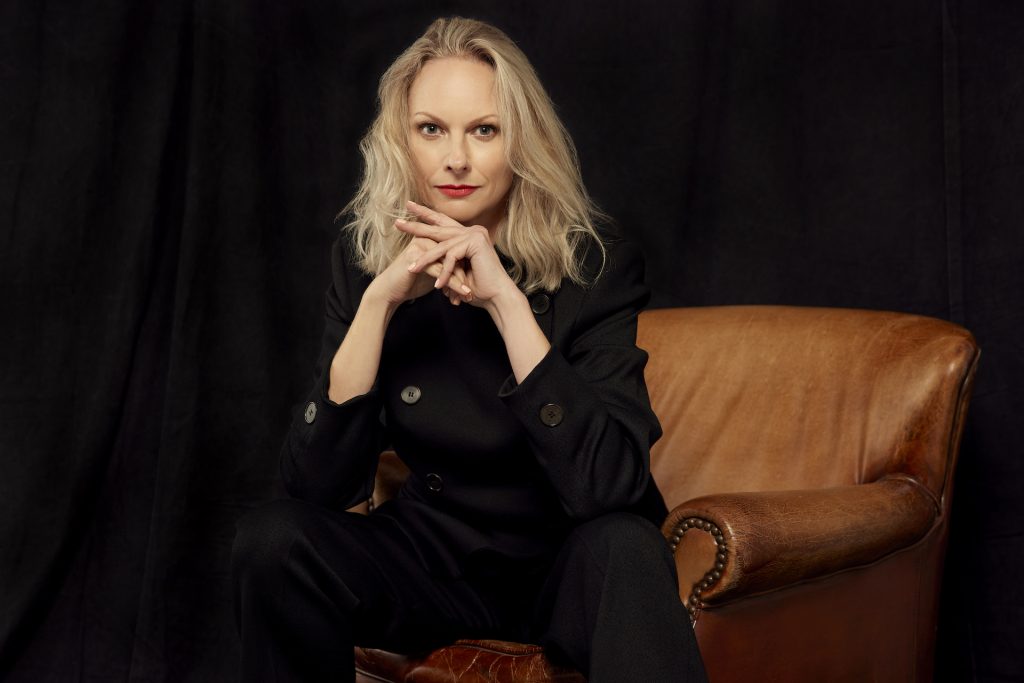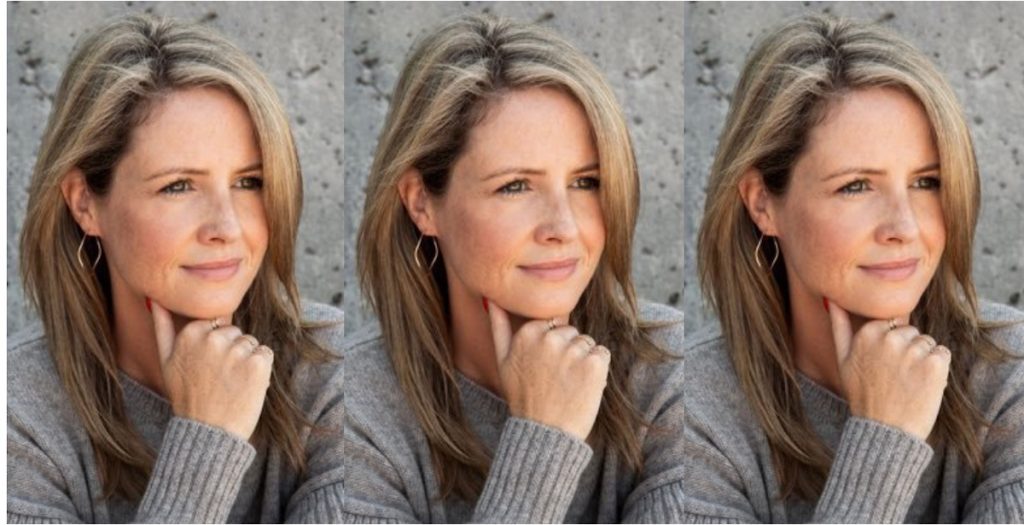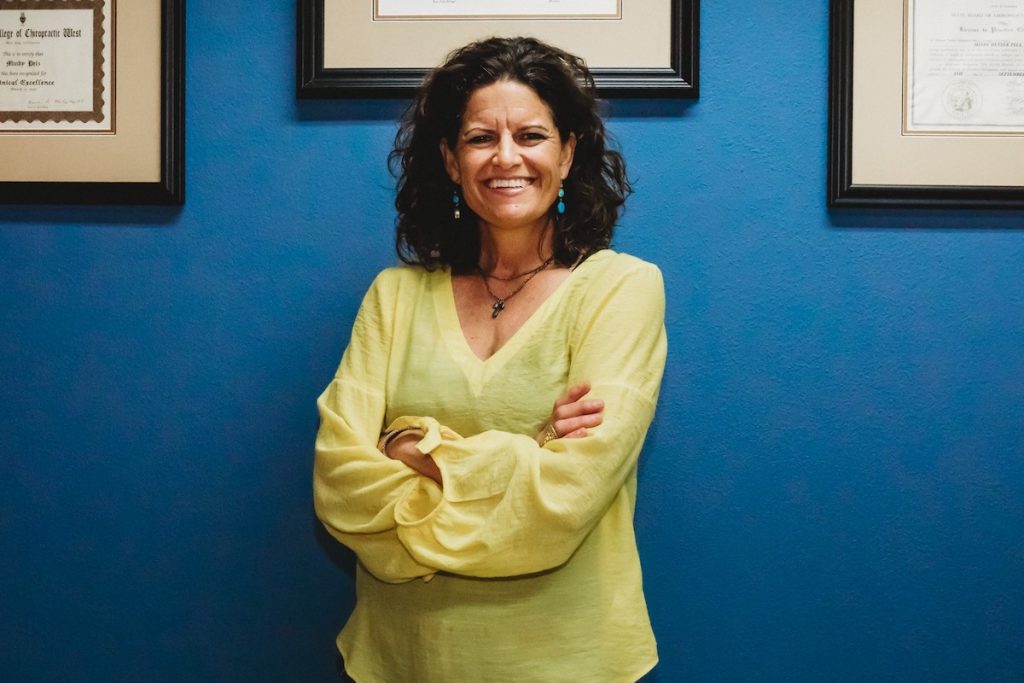It’s a modern malaise that organisations the world over are still trying to manage, but Iskenderian can absolutely see the allure, particularly for young parents. “I know in my organisation, particularly given that we have lots of young moms working here, people have had a taste of what it’s like to be able to do both – work from home and the office – and they like it. The parents who work here say they love having the office to go to as it’s a chance to get away from the kids! But it’s also really nice to have that option to work from home; to be there for their children.”
Iskenderian admits she misses the camaraderie, and likes to head into the office a couple times a week to meet with colleagues. “I’ve actually noticed people are travelling to New York a lot more these days, so perhaps things will change once again.”
Now 16 years with Women’s World Banking, there’s no doubt Iskenderian has seen much change throughout her tenure at the organisation that’s been going for 40-plus years. “You know, a lot of people comment on the fact that I’ve been here for such a long time. However, I’ve been very fortunate that I’ve been able to reinvent the company in a couple of ways, and pivot it to emphasise things that I find really compelling, or that need to be in our mission.”
Like what you’re reading? Sign up to The Suite for exclusive content.
And what a mission that is. Since its founding, Women’s World Banking has been dedicated to the idea that low-income women, in developing countries in particular, need access to the full range of financial products and services. “Not just micro-loans, but savings, insurance, pensions to save for retirement… all of those services,” Iskenderian explains. “So, we work with fintechs, banks, insurance companies, digital banks, mobile network operators and microfinance institutions, so that they know how to serve women well.”
“Getting financial services in women’s hands … is the means to so many other ends … the reduction of poverty, better health, food security, being resilient if you’ve been displaced by climate or by war.”
As President and CEO, Iskenderian’s principal job is to raise funds. “It’s really about bringing a broad audience to our cause; explaining why this is so important,” she explains. “Getting financial services in women’s hands is the specific thing that we’re trying to do, but it is the means to so many other ends and so many other goals: the reduction of poverty, better health, food security, being resilient if you’ve been displaced by climate or by war. All of those things are done better if women have access to convenient, affordable, financial services.”
Billions Of Dollars Ready To Be Tapped Into
Except, millions of women don’t. Cue shocking statistics. Approximately 750 million women around the globe are completely excluded from the formal financial system. There are 12 million women-owned micro, small and medium enterprises (MSMEs) in the world, more than half of which are in the developing world. Yet, 70% of these female entrepreneurs report insufficient access to growth capital, representing an unmet financing need that totals a whopping US$17 trillion. And, if the financial services industry did nothing but include women at the same rate as men, they would unlock some US$700 billion in revenue yearly from deposits, insurance premiums, loans and other services.
“I know, $700 billion – that statistic just blows me away!” says Iskenderian. “There’s money just sitting on the table, there for the taking! I really can’t explain why that economic opportunity isn’t more compelling for more banks. I think we’re starting to see that change, but it’s so frustrating and mysterious to me that it isn’t a more compelling case for some companies.”
“If the financial services industry did nothing but include women at the same rate as men, they would unlock some US$700 billion in revenue yearly from deposits, insurance premiums, loans and other services.”
There are some silver linings, however. The field that Iskenderian works in – financial inclusion – was one of the few places that had some bright spots during COVID. “Most governments around the world – I think about 193 countries – offered COVID-relief payments to their hardest-hit families at the time. Many, if not most, of those governments did them digitally – delivered through mobile money, or digital technology – and so, overnight, millions of people were swept into the financial system as their government made payments available to them,” she explains.
“Actually, in India, which is really quite extraordinary, they made their first round of COVID-relief payments only payable to women, and only digitally. So, within a matter of weeks, you had 25 million new bank accounts opened, primarily by women. But now the onus is on us. We’ve had this great push forward, but we need to keep the momentum up.”
Sparking Change From Inside Organisations
One way Women’s World Banking is doing this is by becoming an investor in financial service providers. “We can have a greater impact in the way the company manages, and its strategic direction, when we’re actually sitting at the table; when we’re a shareholder – not just providing consulting advice. The change you can make from the inside is enormous,” explains Iskenderian.
“For example, we invested in an affordable housing finance company in India that requires the woman’s name to be on the title to the property that’s being financed. So, in one fell swoop, this gives her an asset, and we know asset ownership is an important ingredient in empowerment. If she has a business, this is something that she’s able to use as collateral. But it’s been remarkable seeing the way women’s lives change – the way the dynamic between a husband and wife changes – when she’s on that title and it’s not just his. That’s been really inspiring and very exciting to be a part of.”
Disparity Isn’t Just In The Developing World
Something Iskenderian is also looking forward to in 2023 is a big project that “feels like one of the biggest steps off the cliff that I’ve made so far”, she reveals. “We are keenly aware of how unequal access to finance is in the developed world. There are the statistics, of course – just 2% of venture capital goes to women, which is insane. And there’s the wealth gap, which involves home ownership, investment assets and savings accounts. Women, as a whole, control 40% of the wealth of men, but as soon as you add race or ethnicity, those numbers plummet. Black women are at 12%, Latina women are at 8%; there’s so much disparity in access that we could be working on right here at home. So, I’m very excited about launching a fund to address some of those inequalities here in the United States in 2023.”
It’s clear that with every action she takes, Iskenderian, who is warm, empathetic, authentic and incredibly easy to talk to, wants to leave the world better than she found it, particularly for women. Her one regret, perhaps, is that she didn’t start sooner. “I had been working in development for many years prior to joining Women’s World Banking, and I hadn’t really been focused on women. Now, I feel like I’ll be forever paying penance for the fact that I hadn’t always focused on how important women were to the development of any economy or community,” she says honestly.
“Women, as a whole, control 40% of the wealth of men, but as soon as you add race or ethnicity, those numbers plummet.”
She’s certainly making up for lost time now, not only with her tireless work at the non-profit, but by writing the book, There’s Nothing Micro About A Billion Women, released in early 2022. “I was seeing so much anecdotally, so many individual stories about women who were wonderful, but I wanted to discover whether they had a grounding in broader research. Whether there were things I could point to that could really make that case – to the US$700 billion that these banks were leaving on the table.”
“So, I wrote the book and, yes, it was much harder than I thought it would be, but it was a wonderful experience,” she admits. “I really enjoyed going deep and finally putting between its covers, the ideas and stories of women I’ve met who mean so much to me.”
A Mindset Shift: Every Day Is A New Opportunity
Iskenderian is the kind of woman you remember long after first meeting her, because of her extraordinary passion for her work, and her love of life. As a breast cancer survivor, she now chooses to embrace the really important things, and let everything else go. “You know, I received my diagnosis two weeks, to the day, after my mother passed away from pancreatic cancer. I was grieving her loss and, looking back, I went onto automatic pilot at the time. I went through treatment for a full year, but it was really only after it was all done that the reality of what I’d gone through, and what I’d survived, was realised. Only then did I understand why it’s so important to really grab onto life, to know what’s important and what’s not. That mindset was not a part of the way I actually dealt with the disease, but coming out of it, it just became so much more of the way I think about life.”
And part of that new mindset is taking every day as a new opportunity, even when things feel really hard. “Of course I question myself sometimes, but I also remind myself that we’re trying to do a really big thing for women in a very male-dominated sphere. We won’t let any of their mindsets, or any of their preconceived notions, get in the way of what we know makes sense, of what we know will make money, of what we know can drive change.”
Could part of that driving change be another book in the pipeline, I ask? Absolutely. “I would love to learn enough about these issues in the United States to write a second book here,” she reveals. “My whole career has been in the emerging markets and international, so I need to learn more about my own country. I know there will be some amazing women and amazing stories to tell, so that’s really my next hope.”
Ours too.
TAKE FIVE WITH MARY ELLEN ISKENDERIAN
Can you remember your earliest memory?
My parents and I have figured out that I must have been about four and we were hosting this big family picnic. My father is from Istanbul and my mother came from a big Italian family. That was the side of the family that was at the picnic, but there were two of my father’s relatives who were visiting from Turkey. I was sitting on the grass and one of them was throwing this ball up into the air. I couldn’t believe how he could throw the ball into the air. For whatever reason, that is my very first memory.
What did you want to be when you were little?
I always loved writing. I’ve always wanted to be a writer; it was a big, early aspiration. I actually write a lot for my job now, and even wrote a book, so…
One word to best describe you in high school?
I can only use one word? Awkward.
What’s one thing about you that would surprise people? You know, I think some people think I’m a bit scary, but I’m really not. I’m a huge softie, and I cry at the drop of a hat. I’m not sure if you’ve ever watched the show Call The Midwife, but after every episode I’m weeping! You know, the baby is born and I’m in tears.
The book you recommend to everyone?
I’ve loved and recommended many books over the years, but the first volume (of three) of the biography of Eleanor Roosevelt by Blanche Wiesen Cook is one of my favourites. You see how she goes from being made to feel ugly, inferior and unwanted for so much of the early part of her life, to blossoming with education and assuming this role of a leader – but always with service to others in mind. I’ve given that first volume to so many people, it’s wonderful.
Like what you’ve just read? For exclusive content, sign up to The Suite; the magazine-style newsletter for women in leadership.




